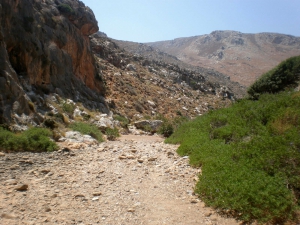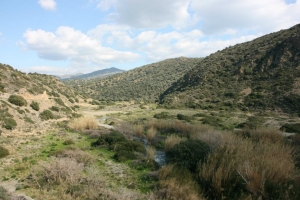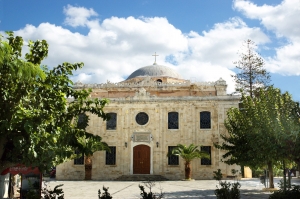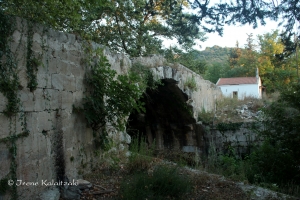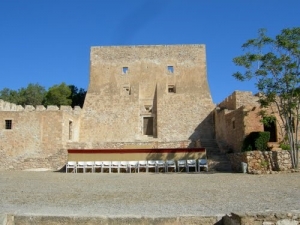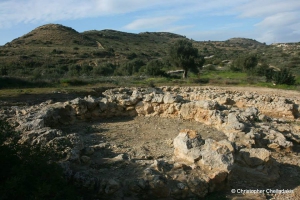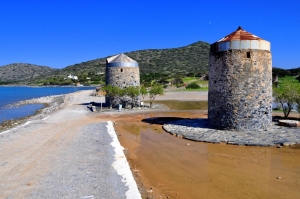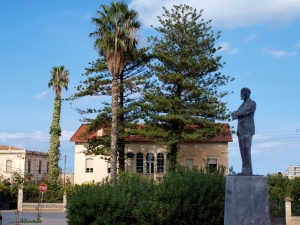The long gorge of Maza starts from the village Karydi, merges a smaller gorge that starts from Vrysidi village and ends shortly before the village Adravasti. It is long and has impressive landforms inside, but the path is only suitable for experts in crossing gorges. In the past it was the main route between the settlements of the area.
Ο Ακουμιανός ποταμός είναι ο τρίτος σε μέγεθος και ποσότητα νερου της επαρχίας Αγίου Βασιλείου Ρεθύμνου (μετά τον Μέγα Ποταμό και τον Πλατύ ποταμό). Παίρνει το νερό του από δεκάδες πηγές από τις πλαγιές των βουνών Κέδρος και Ασιδέρωτας και έχει ροή νερού όλους τους μήνες του χρόνου, ιδιαίτερα στο πάνω μέρος του.
During the second Byzantine period, as the largest and prime official church in the city of Chandax, St. Titus became the seat of the new Orthodox Diocese of Crete. The Venetians later installed a Catholic archbishop and converted the church into a Catholic cathedral.
Η Ελληνική Καμάρα είναι μονότοξη γέφυρα που κτίστηκε στους Ελληνιστικούς χρόνους, αλλά έχει υποστεί μεταγενέστερες προσθήκες (Ενετικές και Οθωμανικές). Το όνομα προέρχεται από το Ελληνι(στι)κή Καμάρα ή από τον Έλληνα Μάρκο που λέγεται ότι τοποθέτησε το κλειδί (κεντρική πέτρα). Το άνοιγμα του τόξου της είναι 11,1μ. το ύψος 8,4μ. και το πλάτος της 3μ.
Венецианская крепость Ситии была сооружена в XIII в. на месте византийского города, где находилась резиденция епископа. Возможно, здесь также находился древний город Ития или Сития. На планах города, сделанных венецианцами, видно, что восточная часть современной Ситии была укреплена, поэтому ее называли "Castello" (ит. "замок").
The historic Monastery of Odigitrias on the way to Agiofaraggo hides many treasures. Beyond the monastery itself with such great history and the tower of Xopateras, it conceals another surprise north of the monastery. This is the prepalatial necropolis of Odigitria, named after the monastery, as we still don’t know the name of the town it belonged to.
Αντίθετα με το συνηθισμένο κτίσιμο των μύλων στις βουνοπλαγιές, στην Ελούντα υπάρχουν τρεις ανεμόμυλοι δίπλα στη θάλασσα, στο σημείο που υπάρχει το κανάλι της Ελούντας. Όλοι τους ανήκουν στον τύπο του Ξετροχάρη, ο οποίος είναι εντελώς κυκλικός και γυρίζει ανάλογα με την κατεύθυνση του ανέμου.
Eleftherios Venizelos lived in his paternal house, in Chalepa (Chania), for more than thirty years, from 1880 to 1910, and occasionally, from 1927 to 1935. He was particularly attached to this house. It is the house where he spent his youth, he got married and had his two children, and where his wife died.





